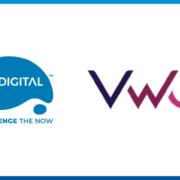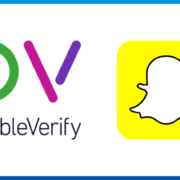How brands acquire and increase user engagement through device-level app recommendation systems

User acquisition has been a challenge for marketers since the early days of app stores. As app stores became more crowded with new apps being added daily, user acquisition strategies also evolved to capture the most relevant audiences and make sure they remain loyal high-LTV users of the app. While traditional app store optimization techniques remain essential, device-level recommendation technology has transformed the user acquisition landscape. These systems use AI-based technology to deliver ultra-personalized content, products, and services directly to users on their smartphones. As artificial intelligence has improved, so has this technology – we’re a long way from the era of simplistic, rule-based systems offering generic suggestions. Today, they are capable of analyzing user behavior, preferences, and contextual data. This evolution has been driven by the huge and continuous growth in mobile app usage, as well as the need for brands to deliver more personalized and relevant user experiences.
In short, device-level recommendations have added a new layer of smartphone personalization while becoming an indispensable tool for marketers to execute highly targeted and successful campaigns. By placing their apps before the most engaged users, on-device recommendations drive app usage and increase retention, resulting in a higher lifetime value per user. A positive user experience fosters loyalty and encourages users to spend more time on their devices, exploring and interacting with different apps. When users receive tailored, contextually relevant suggestions, marketers enjoy better engagement rates and an overall strengthening of the user’s connection with the app and its brand.
Further improvement of AI technology will also enhance device-level discovery in the future by providing more intuitive and context-aware recommendations. Advances in machine learning algorithms will enable devices to better understand user preferences and needs, offering more accurate and timely suggestions. This will lead to a seamless user experience where apps and services are intelligently curated, improving convenience and satisfaction. Additionally, AI will enhance the vetting and approval processes for recommended content, ensuring higher standards of quality and relevance.
Device-level recommendations have transformed the relationship between users and manufacturers. Apps are recommended in an unobtrusive way directly on smartphones, promoting a sense of convenience and trust. These recommendations are vetted and ‘OEM-approved,’ assuring users of their quality and relevance. This approach enhances brand loyalty as users feel confident that their device manufacturer understands their needs and preferences. This careful vetting process is essential not just for quality assurance, but also for maintaining brand safety. Incorporating brand safety measures, device-level technology employs rigorous vetting processes and real-time monitoring to ensure that all recommended apps and content align with the values of manufacturers and developers to maintain the integrity of their brand. This strategic approach not only protects the user experience but also reinforces the trust and loyalty between the user and the manufacturer by providing a safe, secure, and relevant digital environment.
Integrating discovery technology into smartphones empowers leading device manufacturers to offer the highly tailored experience that users want. This personalization makes users more likely to continue using their devices and consider future products from the same manufacturer. The trust established through well-curated, contextually relevant recommendations translates into stronger brand loyalty and higher customer retention.
The transformative impact of device-level recommendations extends beyond mere functionality; it fundamentally changes how users interact with their devices. Phones become smarter, more intuitive, and increasingly aligned with users’ habits and preferences. The device feels like a natural extension of the user, rather than a separate tool.
Device-level recommendations have revolutionized how brands acquire and retain users by offering a more personalized, immediate, and secure user experience. These systems transform smartphones into highly intuitive devices that seamlessly integrate into the user’s daily life. As this technology continues evolving, its impact on user engagement and satisfaction will grow, solidifying its place as one of the most critical tools in the digital marketing arsenal. The opportunities for brands to connect with their users in more meaningful and impactful ways are potentially limitless.
About the author:
Danny Tuttnauer, COO – Appnext














